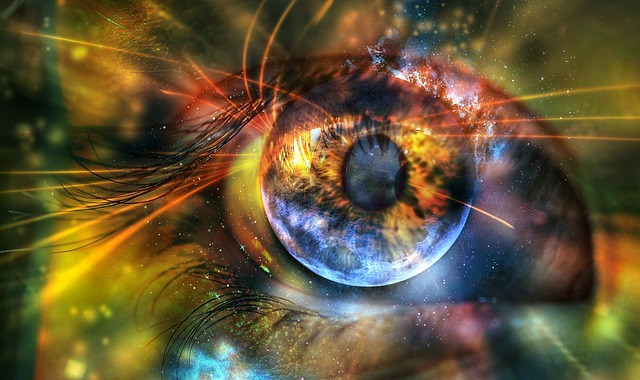We’ve long known about the profound visual effects that humans can experience when under the influence of psychedelic substances, but until now we haven’t had much insight into how they affect those of us without vision. However, a new case report published in this month’s issue of the scientific journal Consciousness and Cognition has expanded our understanding of this scenario.
The report describes what happened when a 70-year-old congenitally blind man took LSD and other psychedelic substances like psilocybin mushrooms and cannabis during his years as a rock musician in the 1970s. This is groundbreaking because it is the first qualitative account ever published in a scientific journal that looks at at how LSD affects people born without sight.
In fact, there was only one other study, conducted way back in 1963, that addressed how LSD affects blind people. It examined whether the functioning retina (the part of the eye that senses light) is capable of producing visual hallucinations on its own, an idea the data did not support.
But that study had a narrow scope—it didn’t look at any other aspects of the participants’ experiences, such as how LSD affected the 24 blind participants psychologically, or how it altered their other senses like hearing and touch.
Many psychedelic substances are capable of producing synesthesia, the sensory confusion whereby one sense is perceived as another, such as when a person “sees” sounds or “tastes” colors. Reports of LSD causing synesthesia have been common since the substance was first synthesized by Albert Hofmann in 1938, but until now we haven’t known whether it is capable of producing vision in those who are blind.
The case subject in this new report is identified by a pseudonym named after his favorite kind of LSD, “Blue Pentagon.” Mr. Blue Pentagon was permanently blinded when he was oversaturated with oxygen during his premature birth in 1948. Inspired by his love of music, he became a professional keyboard player, singer, and entertainer for several years.
Mr. Blue Pentagon did not report that LSD was able to make him see, but his senses of sound and touch were greatly affected by the chemical.
“Every time I did acid, I experienced something new and spectacular,” he said. “Obviously through the senses which are available to me! I never had any visual images come to me. I can’t see or imagine what light or dark might look like. With LSD and cannabis though, I experienced so much through my hearing, touch and emotions that it was already enough for me to take!”
He explained that LSD was capable of causing synesthetic sensations involving other senses when combined with music. “During my psychedelic experiences, whenever I listened to music, I felt as if I was immersed in the most beautiful waterfall ever.”
There was one particular piece of music that would bring on the waterfall effect for him—Bach’s third Brandenburg Concerto. He enjoyed listening to it, reporting “I could hear violins playing in my soul and found myself having a one hour long monologue using different tones of voices.
“I remember they sounded extremely unique! LSD gave everything ‘height’… the sounds coming from songs I would normally listen to became three dimensional, deep and delayed. It seemed that music began coming apart and unravelling.”
Mr. Blue Pentagon also referred to other ways that psychedelics interacted with his senses, including one time that his sense of touch was altered when he took both LSD and cannabis at the same time.
“Once I took acid and marijuana at the same time and I wanted to feel everyone’s faces so that I could tell each person what I thought of them just by touching their faces. It was a very strange experience as their skin felt so soft, but their eyes, noses and mouths were in some way distorted.”
Psychedelics also altered his perception of time, even causing him to experience temporary aphasia, an inability to understand speech, while under the influence of LSD. Psychedelics also greatly impacted his dreams.
“My dreams have always been very vivid in the past, but when I was under the influence of LSD, I would occasionally find myself dreaming in prose… I couldn’t always sleep, but if I did my dreams would be extremely detailed, sometimes even in very wordy Shakespearean language, often lasting longer than my normal dreams.”
Although Mr. Blue Pentagon experienced many extraordinary things with psychedelics, he told the researchers that he eventually quit using them because he felt that they had caused him to become too introverted and paranoid.
Thanks to the publication of this case report, we now have a better understanding of what can happen to blind people when they take psychedelics. While they might not experience any visual effects during a psychedelic voyage, their emotions and other senses can be greatly affected.










